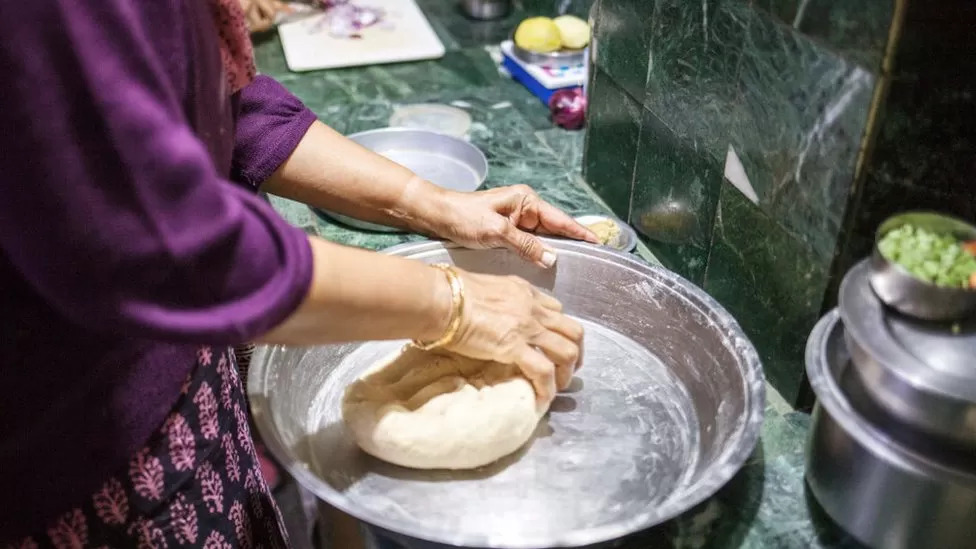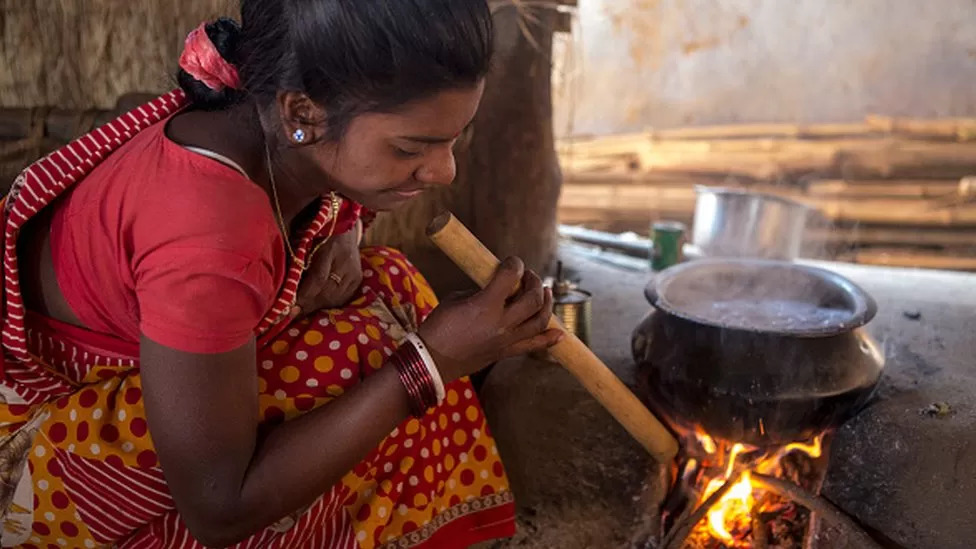An Indian court’s recent verdict that significantly expands the rights of homemakers over their husband’s property has been hailed as a positive sign by women’s rights advocates.
On 21 June, the Madras high court – in the southern state of Tamil Nadu – passed a verdict in a domestic dispute case that allowed a housewife equal share in her husband’s property.
Experts say this is the first time an Indian court has formally recognised the contribution of a housewife to the husband’s income. They, however, point out that the verdict is not binding on other states unless the country’s Supreme Court rules along similar lines in future.
What was the case about?
It involved a couple from Tamil Nadu who’d married in 1965. After 1982, the husband moved to Saudi Arabia for a job. His wife, who stayed back in India and had no income of her own, bought several assets – real estate and jewellery – using the money the husband sent home.
On his return to India in 1994, the man alleged that his wife was trying to claim sole ownership over all their properties. He also claimed she was hiding her gold jewellery and wanted to sell an asset by giving the power of attorney to a person with whom she was allegedly having an affair.
The dispute covered five assets. Four were properties bought in the woman’s name, including a house and land. The fifth tranche comprised gold bars, jewellery and sarees gifted by the man to his wife.
In 1995, the man filed a case before a trial court to claim ownership over all five assets – including the gifts he had given her which belonged to her.
He claimed that all the assets were bought with his money and the woman only held them on his behalf as a trustee.
In 2007, he died and his children took up the claim.
What did the court say?
In its verdict, the court said that the wife had contributed equally towards acquiring family assets by doing domestic chores.
It said that the “contribution made by either the husband by earning or the wife by serving and looking after the family and children” would mean that “both are entitled equally to whatever they earned by their joint effort”.
It did not matter in whose name the property was bought – the spouse who looked and cared after the family would be entitled to an equal share in them.
The court also held that the woman’s domestic labour contributed indirectly to earning the money that enabled the purchase of the assets and that her work allowed the husband to be gainfully employed.

The wife works for 24 hours in various roles, including that of a chef, a “home doctor” and a “home economist”, the court said. In the absence of the homemaker’s duties, the husband would have to pay for the services these roles provided.
“By performing these skills, a wife makes the home a comfortable environment and her contribution towards the family, and certainly it is not a valueless job, but it is a job doing for 24 hours without holidays, which cannot be less equated with that of the job of an earning husband who works only for 8 hours,” the court noted.
The court added that when a woman gave up her job after marriage, it often led to an “unwarrantable hardship” where she did not own any assets.
While there was no law that directly or indirectly recognised a housewife’s contribution, the court said that there was no law barring judges from recognising it.
The court used this reasoning to rule that three of the five assets equally belonged to the husband and wife.
Regarding the fourth asset, the court held that the wife was the sole owner since she bought it by pledging the jewellery she got at the time of her marriage, which was her sole property under Hindu law.
As for the fifth tranche – the gifts – the husband had also claimed ownership of them saying that he “had not bought the same on his own volition but only… to fulfil her [wife’s] wishes”. The court rejected this argument.
Why is this being praised?
Women’s rights lawyer Flavia Agnes called it a “very positive judgement because it recognises women’s domestic labour”.
Malavika Rajkotia, a family and property lawyer, said the verdict was “a very important milestone”, one that women had been “trying to evolve and plead in their various cases”.

Indian judges had earlier put a notional value to a housewife’s income to award compensation to their families in motor accident claims, Ms Rajkotia said. In some cases, amounts ranging between 5,000 rupees ($61; £47.9) and 9,000 rupees ($109.7; £86.2) a month had been fixed for a housewife’s work.
“But it translated into numbers that were not large enough to become meaningful,” she says. “This is, for the first time, a meaningful recognition of the homemaker’s right.”
So the hope is that the judgement could have a positive impact in future.
“In India, we have a ‘lifestyle rule’ in divorce cases,” Ms Rajkotia says. “As long as the maintenance and alimony amount take care of the lifestyle of a woman, then all other claims become moot.”
The statutes also do not specifically articulate the wife’s ownership in the husband’s property by recognising her domestic labour which allows him to earn money to buy the asset, Ms Rajkotia said.
“Now this judgement, according to me, creates a right in an asset beyond this lifestyle rule,” she said.
Ms Agnes, however, cautions that other high courts in the country could still take conflicting stances.
One would have to see how this right translates to subsequent cases, Ms Rajkotia says.
“We might see variations of how courts choose to apply this right,” she says.
“However, the important thing is the court clearly articulates the meaningful value of a housewife’s labour.”
Source : BBC


